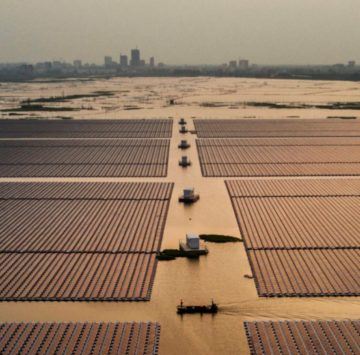Seaver Wang in The New Atlantis:
 In the Himalayas and the Middle East, countries feud over water. In the African Sahel, farmers feud over cropland. In the melting Arctic, governments feud over seabed minerals. Climate change has provided bottomless inspiration for aspiring paperback novelists. But while thrillers must thrill and generals must fret, fears about the national security threats that climate change could present remain too vague to act on. The geopolitical reasons for a strong U.S. response to climate change lie not in what Americans might imagine about tomorrow’s world politics but in the global political relationships at stake today.
In the Himalayas and the Middle East, countries feud over water. In the African Sahel, farmers feud over cropland. In the melting Arctic, governments feud over seabed minerals. Climate change has provided bottomless inspiration for aspiring paperback novelists. But while thrillers must thrill and generals must fret, fears about the national security threats that climate change could present remain too vague to act on. The geopolitical reasons for a strong U.S. response to climate change lie not in what Americans might imagine about tomorrow’s world politics but in the global political relationships at stake today.
The imagined scenario goes something like this: The world fails to halt climate change in the coming decades and remains dependent on fossil fuels. A warming climate produces greater resource scarcity, leading to more frequent wars and mass displacement of people. Global crises over energy supplies threaten the U.S. economy and international treaties, and soldiers get pulled into resource wars to protect American interests and allies.
These visions of the future might make good ammunition for Hollywood, but they provide a far too narrow, distant, and pessimistic frame for climate change as a U.S. foreign policy issue.
More here.
